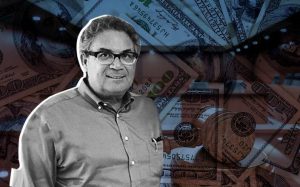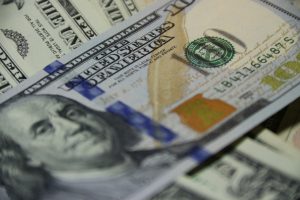Miami, Florida
 Los Angeles residents Dane Roseman, 38, and Ivan Acevedo, 44, pled guilty this week to participating in a massive investment fraud scheme, officials stated.
Los Angeles residents Dane Roseman, 38, and Ivan Acevedo, 44, pled guilty this week to participating in a massive investment fraud scheme, officials stated.
More than 7,000 victims suffered financial losses as a result of the fraud scheme, one of the biggest fraud schemes in South Florida, according to authorities.
Roseman and Acevedo are scheduled to be sentenced on Sept. 20.
Co-defendant Robert Shapiro, the former owner, president, and CEO of Woodbridge Group of Companies LLC, was previously sentenced to 25 years in prison for his leadership role in the fraud scheme and his separate income tax fraud, officials stated.

According to the indictment, superseding information, and court documents, Shapiro spearheaded and concealed an enormous Ponzi scheme through his business, Woodbridge. Woodbridge employed approximately 130 people and had offices located throughout the United States, including in Boca Raton, Florida; Sherman Oaks, California; Colorado; Tennessee; and Connecticut.
The scheme ran from 2012 to December 2017, when Woodbridge filed for Chapter 11 bankruptcy and defaulted on its obligations to investors.
 Shapiro and his co-conspirators convinced more than 9,000 investors to invest more than $1.29 billion to Woodbridge.
Shapiro and his co-conspirators convinced more than 9,000 investors to invest more than $1.29 billion to Woodbridge.
Court documents indicate that 2,600 of these investor victims invested their retirement savings, totaling approximately $400 million.
Shapiro misappropriated about $25 million to $95 million in investor money for himself and for the benefit of his immediate family members.
 Roseman received approximately $2.5 million in Woodbridge money and Acevedo received approximately $1.1 million.
Roseman received approximately $2.5 million in Woodbridge money and Acevedo received approximately $1.1 million.
“According to the Real Deal news, many of Shapiro’s and Woodbridge’s pricey residential properties in Los Angeles and at least one in Palm Beach, Florida, have been sold off in the past couple of years to help pay back investors,”
The U.S. Securities and Exchange Commission (SEC) filed parallel civil enforcement actions against Woodbridge, Shapiro, his wife, and Acevedo and Roseman related to the fraud.
 Woodbridge falsely claimed that these investments were tied to real property owned by third parties and that the third parties would be making the interest payments to Woodbridge and its investors; it was portrayed as an investment in a hard-money lending business.
Woodbridge falsely claimed that these investments were tied to real property owned by third parties and that the third parties would be making the interest payments to Woodbridge and its investors; it was portrayed as an investment in a hard-money lending business.
Roseman started working for Woodbridge as a sales agent in or around August 2012. Between 2015 and 2017 he served as the sales manager of Woodbridge.
Acevedo started working for Woodbridge as a sales agent in or around 2009, and in 2013 to December 2014 he served as the sales manager of Woodbridge.
As sales managers, defendants sold Woodbridge securities and supervised Woodbridge internal sales agents who sold Woodbridge securities.
 Using high-pressure sales tactics, Shapiro, Roseman, Acevedo, and others marketed and promoted these investments as low-risk, safe, simple, and conservative, court records indicate. And at minimum, investors were made to believe that Woodbridge’s real estate dealings would generate the funds used to pay the return on their investments.
Using high-pressure sales tactics, Shapiro, Roseman, Acevedo, and others marketed and promoted these investments as low-risk, safe, simple, and conservative, court records indicate. And at minimum, investors were made to believe that Woodbridge’s real estate dealings would generate the funds used to pay the return on their investments.
The Woodbridge sales operation controlled by Shapiro, managed by Acevedo then Roseman, functioned as a “phone room” and featured high-pressure sales tactics, deception, and manipulation.

Woodbridge promoted investments through telephone and in-person conversations, e-mails and website displays. The scheme also involved misrepresentations to financial planners who helped Woodbridge to sell investments to potential investors.
Despite Woodbridge’s claims that these investments would be backed by properties owned by third parties, in fact, to the extent that the properties existed, they were secretly owned by Shapiro.
Unbeknownst to investors, Shapiro created and controlled a network of more than 270 limited liability companies, which he used to acquire and sell the properties pitched to investors.
 Shapiro, Roseman, and Acevedo falsely claimed that Woodbridge was profitable and advertised high rates of return to investors. However, Shapiro’s real estate portfolio failed to generate sufficient cash flow to satisfy the loan obligations and interest payments owed to investors.
Shapiro, Roseman, and Acevedo falsely claimed that Woodbridge was profitable and advertised high rates of return to investors. However, Shapiro’s real estate portfolio failed to generate sufficient cash flow to satisfy the loan obligations and interest payments owed to investors.
To make up for the cash deficiency, Shapiro resorted to making Ponzi payments, i.e., hundreds of millions of dollars invested by new investors were used to pay “returns” to older, existing Woodbridge investors.
In some instances, Shapiro made these fraudulent “interest” payments even when the advertised investment properties were never acquired.
As its sole owner and chief operator, Shapiro compartmentalized Woodbridge operations to restrict access to information concerning Woodbridge’s finances.
Neither Roseman nor Acevedo had access to or knowledge of Woodbridge’s finances and were unaware that Shapiro was using new investor money to pay prior investors.
Neither Roseman nor Acevedo had direct knowledge that Shapiro was operating a Ponzi scheme by using new Woodbridge investor money to pay prior investors.

